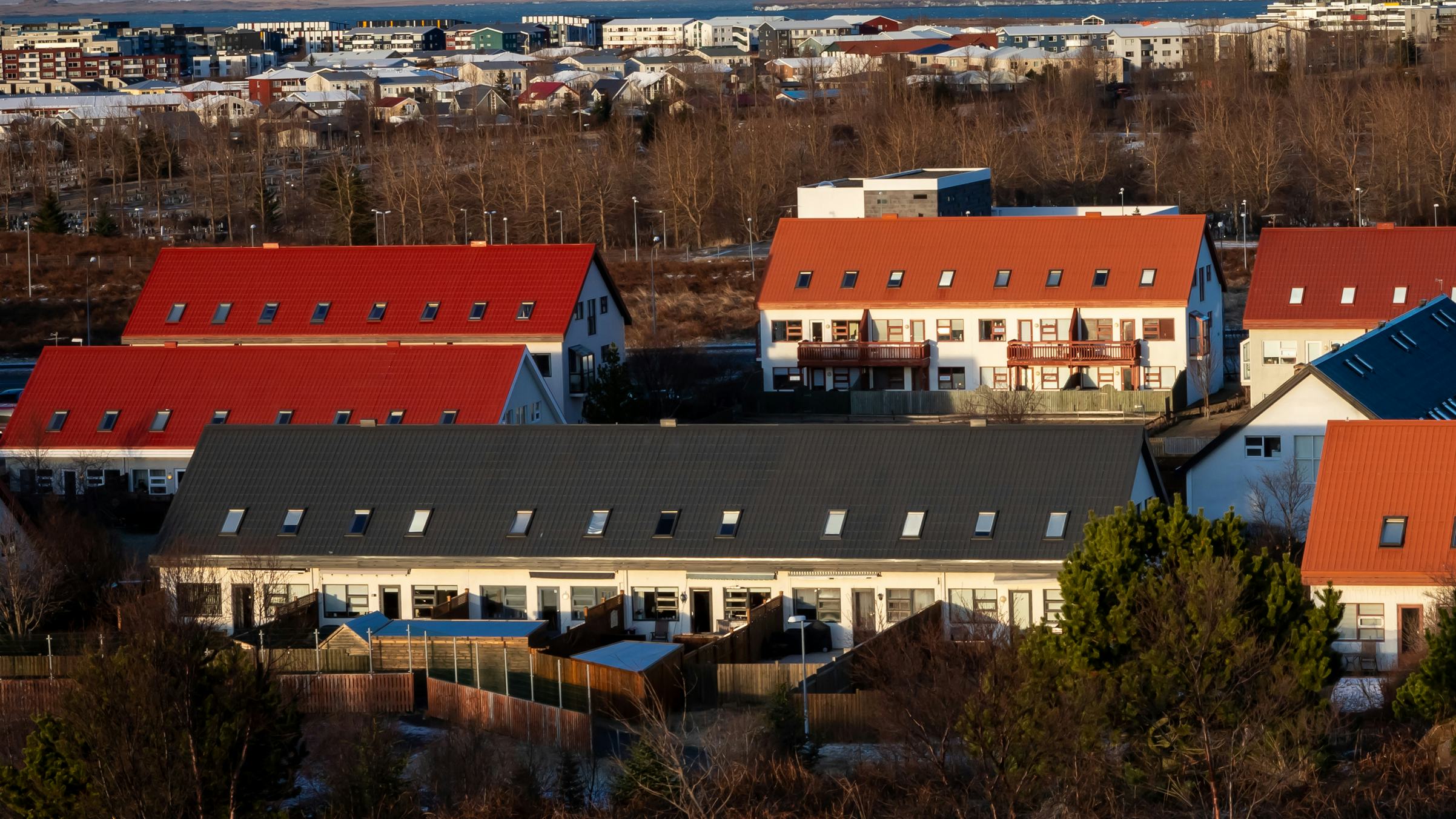The week ahead
- Today, the Icelandic Tourist Board releases tourist figures for November.
- On Tuesday, the price measurement week of Statistics Iceland ends.
- On Thursday, Statistics Iceland publishes data from the income composition measurement of the household sector in the third quarter.
- On Friday, the Central Bank of Iceland (CBI) publishes payment mediation figures for November.
Image of the week
The housing market has picked up this winter and housing prices are rising again. Despite limited access to credit, the number of first-time buyers is up by 40% between the second and third quarters and they went from 26% of all buyers to 33%. This is similar to pandemic figures, when interest rates were at their lowest, allowing more people to enter the housing market. Various factors are at play here, such as easier access to equity loans following the relaxation of conditions for such loans in the third quarter. Equity loans are designed to assist first-time buyers into the market. Public debate about an impending housing shortage and price increases may also fuel demand. A more positive attitude towards inflation-indexed loans and their increasing popularity may be an influencing factor - inflation-indexed borrowing has increased greatly in recent months.
Highlights of the previous week
- The CBI published the minutes of the meeting of the Monetary Policy Committee 20-21 November. For the first time since March, the MPC was unanimous in its decision. The MPC decided to maintain unchanged policy rates in light of the uncertainty caused by seismic activity on the Reykjanes peninsula. The minutes reveal that a deteriorating inflation outlook and residual heat in the economy would have prompted a wage hike were it not for the aforementioned uncertainty.
- The Financial Stability Committee published a statement to the effect that the financial system is sound and the equity and liquidity positions of the banks strong. Defaults remain low and have risen but minimally despite rising inflation. The countercyclical capital buffer was kept unchanged at 2.5%.
- Registered unemployment was 3.4% in November according to the monthly report released by the Directorate of Labour on Friday. Unemployment is up from 3.2% in October. In 2022, unemployment held steady between October and November. This increase now could be attributed to less tension in the labour market in line with lower demand in the economy.
- Alma íbúðafélag finalised its auction of bills, Hagar published the results of its bills auction, Arion Bank published the results of its bond issuance and Kvika Bank released the results of its issuance of subordinated bonds.
Statistics and market data
Disclaimer
This review and/or summary is marketing material intended for information purposes and not for business purposes. This marketing material does not contain investment advice or independent investment analysis. The legal provisions that apply to financial advice and financial analysis do not apply to this content, including the ban on transactions prior to publication.Information about the prices of domestic shares, bonds and/or indices is source from Nasdaq Iceland - the Stock Exchange. Landsbankinn’s website contains further information under each individual equity, bond class or index. Information about the prices of non-domestic financial instruments, indices and/or funds are sourced from parties Landsbankinn considers reliable. Past returns are not an indication of future returns.Information about the past returns of Landsbréf funds is based on information from Landsbréf. Detailed information about the historic performance of individual funds is available on Landsbankinn’s website, including on returns for the past 5 years. Information about the past performance of funds show nominal returns, unless otherwise stated. If results are based on foreign currencies, returns may increase or decrease as a result of currency fluctuations. Past returns are not necessarily an indication of future returns.Securities transactions involve risk and readers are encouraged to familiarise themselves with the Risk Description for Trading in Financial Instruments and Landsbankinn’s Conflict of Interest Policy, available on Landsbankinn’s website. Landsbankinn is licensed to operate as a commercial bank in accordance with Act No. 161/2002, on Financial Undertakings, and is subject to supervision by the Financial Supervisory Authority of the Central Bank of Iceland (https://www.cb.is/financial-supervision/)









